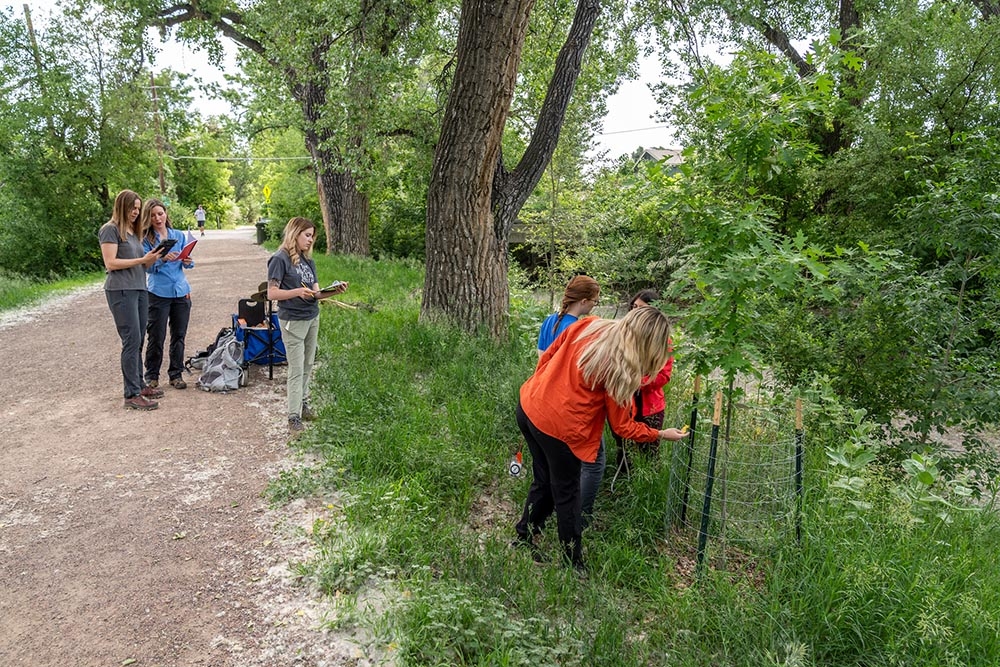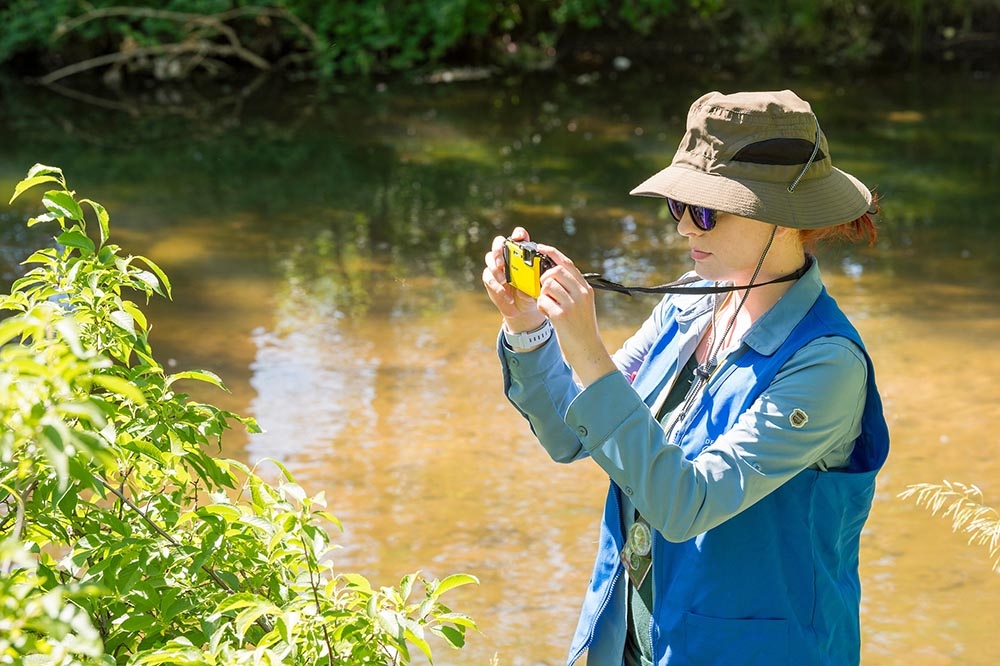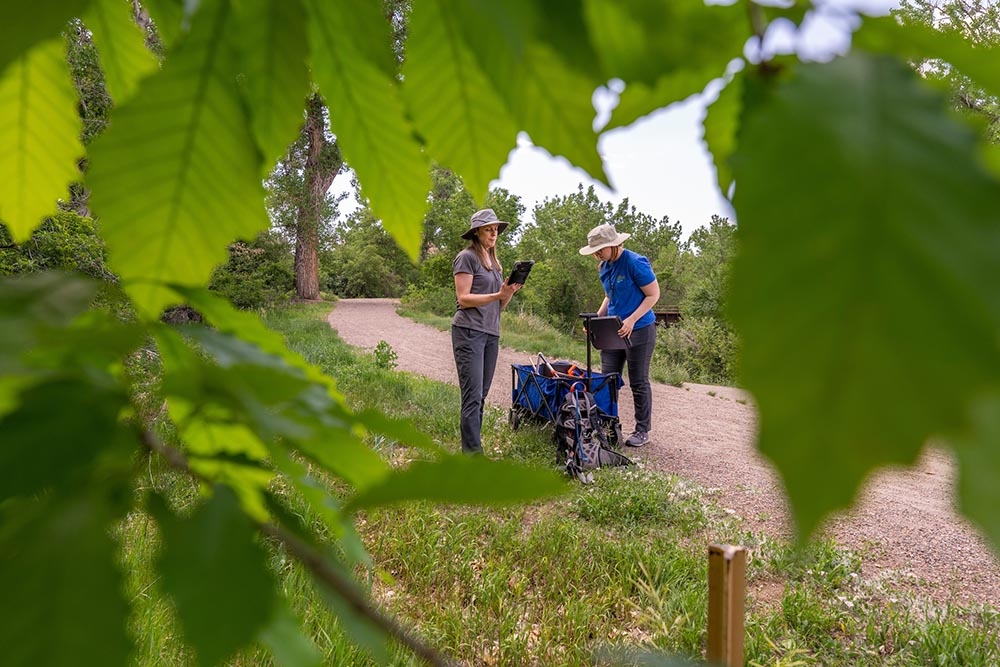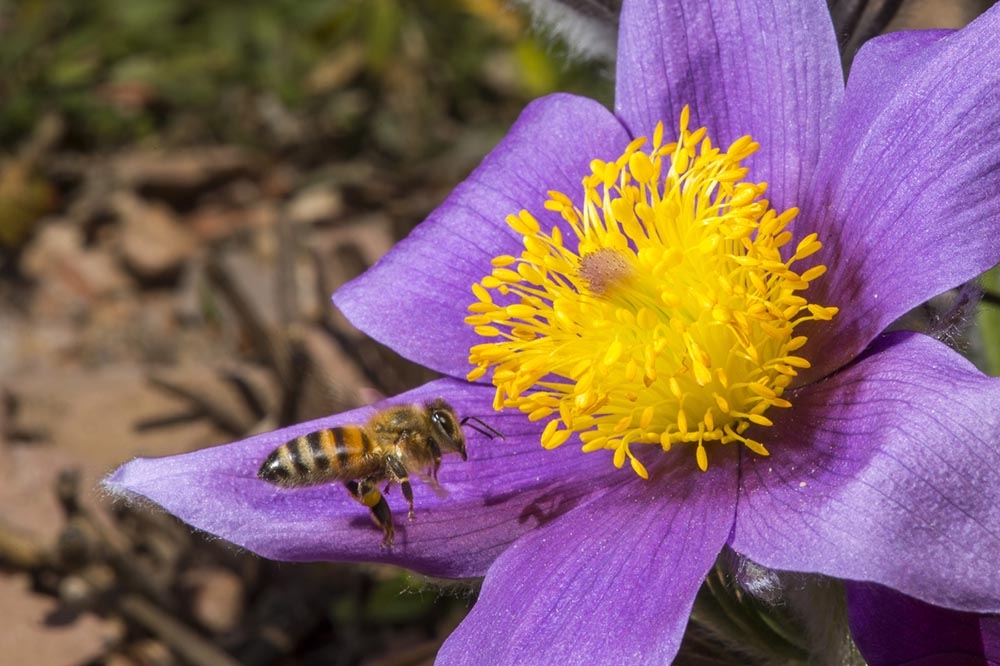Spring is here! Join us as a community scientist.
As the days grow longer and warmer, we start looking for the telltale signs that spring is arriving – birds chirping, trees leafing out, lilac buds, bulbs emerging out of the damp soil. As you observe nature around you, why not start taking pictures, recording your observations and contributing to large projects as a community scientist? April is the perfect month to join community science efforts across the globe.
At Denver Botanic Gardens, our scientists are particularly interested in studying patterns and processes of biodiversity. One way we do this is through community science (also known as citizen science) initiatives such as the Denver EcoFlora project. These initiatives allow participants to connect with plants by making observations of biodiversity patterns in their environment. EcoFlora is based on the traditional flora concept, a list or inventory of plants in an area or period of time. We run the Denver EcoFlora project on the iNaturalist platform where we engage the community in documenting plants living in the Denver-metro area. Our goal is to document all plants living in the seven-county area (Adams, Arapahoe, Boulder, Broomfield, Denver, Douglas, Jefferson) using the iNaturalist app. Why? Well, understanding the flora of an area is the best way to protect it.
As part of the EcoFlora project, we send out monthly challenges, “EcoQuests,” to engage participants in documenting a specific species, group of plants or theme. April’s EcoQuest has two-parts, the first is focused on some of the first flowers to emerge in spring, the pasque flowers (Pulsatilla nutalliana). Then starting April 28, a global competition begins with the City Nature Challenge – a challenge to document the most biodiversity within cities. Using the iNaturalist app you can make observations of any wild organism: plant, bird, insect, fungi. Observations made between April 28 – May 1 count toward the competition. Last year we had nearly 400 participants observe more than 600 species. Our goal is to surpass those numbers this year. Many local partners are organizing hikes or bioblitzes during the City Nature Challenge. Check our website for details on events and how to register.
You can contribute to scientific studies by downloading the iNaturalist app and using it to take photos of the nature around you. We encourage you to get outside, feel the sun on your face and contribute to science while you’re out there.
This article first appeared in the April issue of Life on Capitol Hill.
Gallery




Add new comment